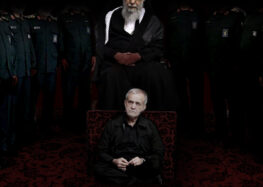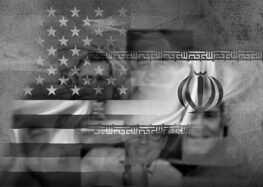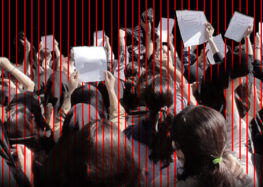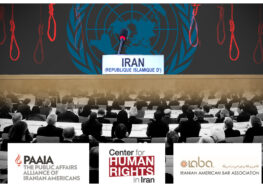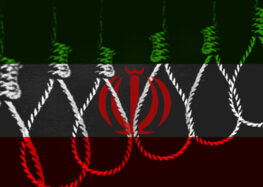Human Rights Can and Should be Front and Center in U.S. Foreign Policy on Iran
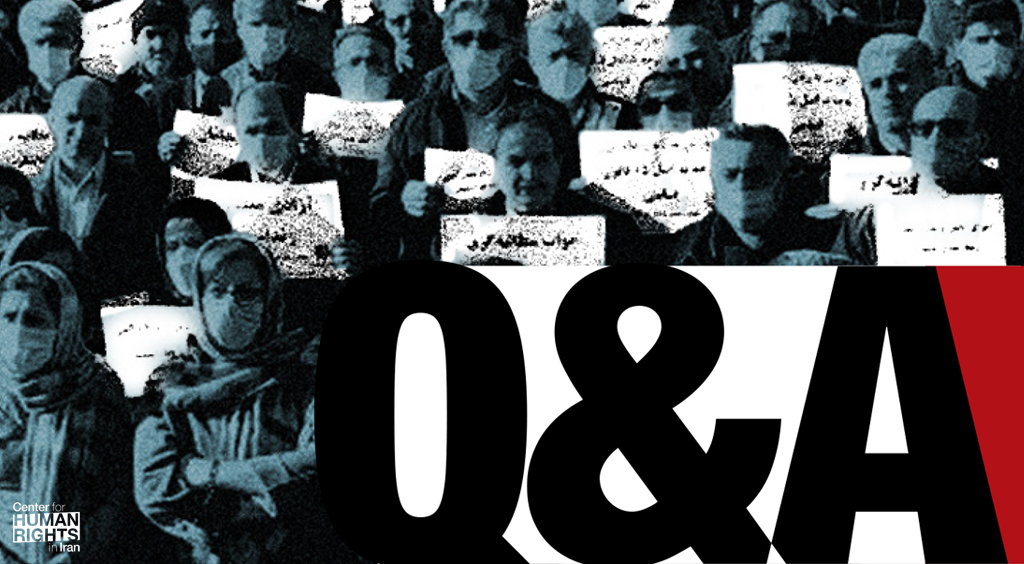 New Q&A Answers Concerns Over Prioritizing Human Rights
New Q&A Answers Concerns Over Prioritizing Human Rights
August 9, 2022—Prioritizing human rights represents the most effective means for the U.S. to influence Iranian state behavior and address the Islamic Republic’s destabilizing activities, the Center for Human Rights in Iran (CHRI) said in a new Q&A, “Prioritizing Human Rights in Iran: A New U.S. Foreign Policy Approach: Q&A on Recommendations for the U.S. Government” published today.
Download the Q&A in PDF Format
The Q&A follows on the heels of a briefing by CHRI, Human Rights in Iran and U.S. National Security Interests: A Path Forward for U.S. Foreign Policy Toward the Islamic Republic, that lays out a U.S. foreign policy approach to Iran that affords human rights a central role, equal in importance to and pursued on par with other political, economic and strategic policy streams and objectives.
![]() This approach would be focused on the U.S. government recognizing the rights and amplifying the voices of civil society in Iran—voices that are largely unsupportive of many of the Islamic Republic’s activities yet are unable to safely express dissent. It argues that such an approach has far more potential over the long term for influencing Iranian state behavior than economic pressure or military action, which have proved either ineffectual or widely discredited.
This approach would be focused on the U.S. government recognizing the rights and amplifying the voices of civil society in Iran—voices that are largely unsupportive of many of the Islamic Republic’s activities yet are unable to safely express dissent. It argues that such an approach has far more potential over the long term for influencing Iranian state behavior than economic pressure or military action, which have proved either ineffectual or widely discredited.
The new Q&A addresses the following questions that government officials, experts and journalists have posed to CHRI regarding our policy recommendations:
- Would prioritizing the promotion of human rights in Iran be used by some to advance the argument for military intervention in Iran and regime change?
- Will advocating for human rights in Iran harm prospects for a nuclear deal with the Islamic Republic?
- Will supporting the voices of dissidents harm the very people you hope to help?
- The U.S. has voiced support for human rights in Iran before and it has not made any difference. Why do you think anything will change?
- The Islamic Republic is impervious to change; there have been protests for decades in the country and the government has always been able to crush them. It will just keep jailing—or killing—dissidents. Is a different outcome possible?
The Q&A argues forcefully against the view that human rights promotion undermines the nuclear negotiations, is a fig leaf for regime change, or harms the dissidents in Iran it seeks to support. It makes the case that with dissent in Iran intensifying, civil society is a more important player in the long run than commonly perceived.
“U.S. policies on Iran are hamstrung by the refusal to recognize the Iranian people as the potential key to influencing the Islamic Republic’s policies,” said CHRI Executive Director Hadi Ghaemi.
“The U.S. government cannot hope to influence the Iranian government’s behavior on its nuclear program and other issues while ignoring millions of Iranians who are risking their lives to protest state policies,” Ghaemi added. “If the U.S. government wants progress, it must acknowledge the people who are pushing for it inside Iran.”


